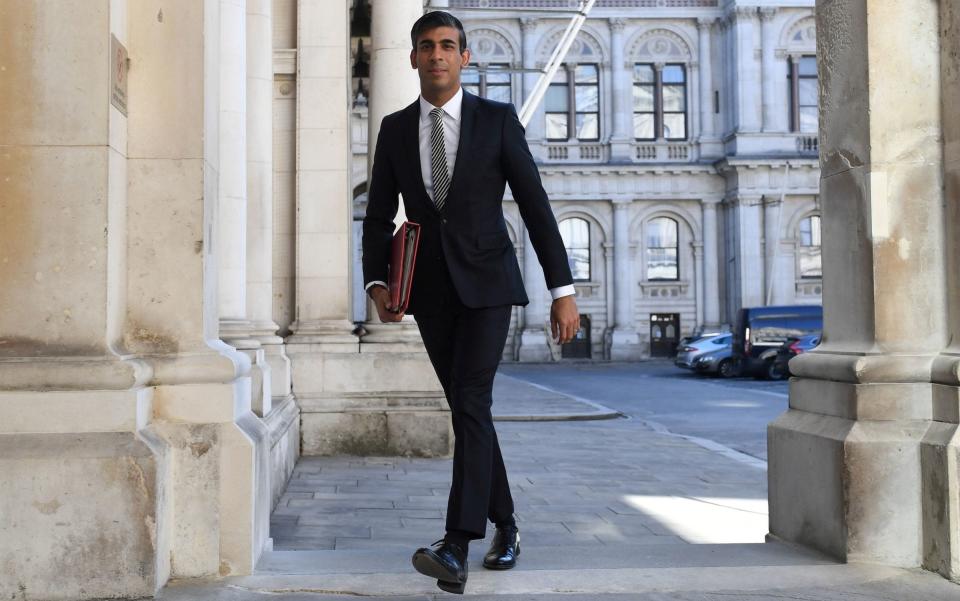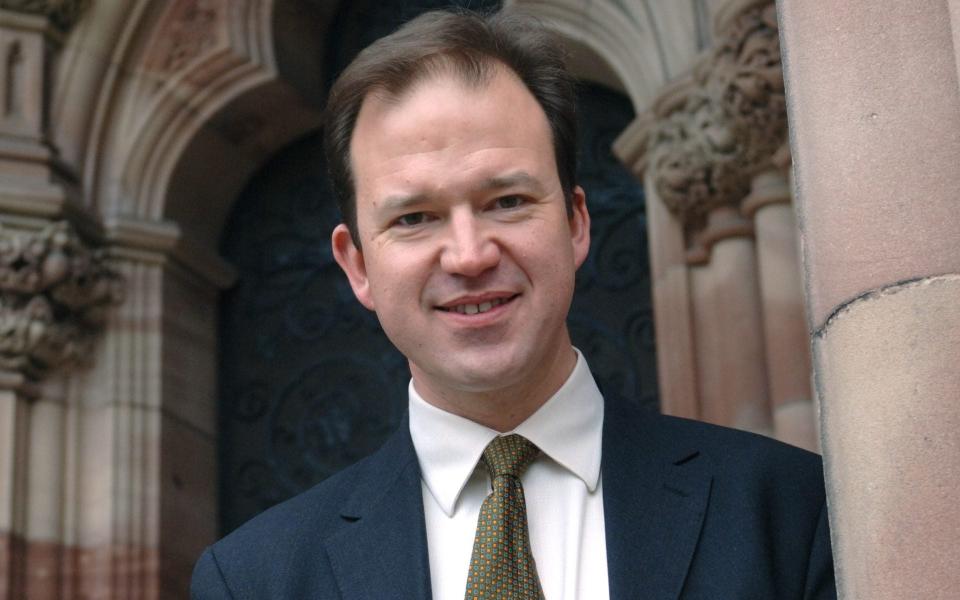Rishi Sunak could hike business rates for 'most valuable properties'

Rishi Sunak is considering an increase in business rates for the "most valuable properties", with fears being raised that the move could hurt firms already struggling amid the effects of the coronavirus crisis.
The Chancellor has asked for industry feedback on whether high end shops, offices and other large premises should pay a new, higher business rate, with responses due ahead of the autumn Budget.
In a call for evidence as part of a business rates review, the Treasury said failing to raise enough revenue from them could put pressure on "other parts of the tax system".
Business rates are based on shop rental values, typically calculated every five years and paid by tenants rather than property owners. Critics say the system is unfairly priced and puts bricks and mortar businesses at a disadvantage compared to their online competitors.
At present, a "standard multiplier" applies to properties with rateable value of over £51,000, while about 1.8 million small businesses below that value pay a lower rate. The consultation is examining proposals to create "additional higher multipliers for the most valuable properties".
On Tuesday, business rates experts described the proposals as "abhorrent".
Jerry Schurder, the head of business rates at consultancy Gerald Eve, said: "It beggars belief, considering the primary complaint about business rates is that the tax is just too high."
Mr Schurder said the "most valuable properties" could include large shops, supermarkets, offices, hotels and cinemas.
Distribution warehouses, including for businesses which supply the hospitality industry and have already been struggling as a result of the virus crisis, would be likely to be affected, he added.
On Tuesday, it emerged Pizza Express is considering closing 67 of its restaurants, putting 1,100 jobs at risk, as it struggles with the effects of the pandemic. The chain became the latest high street business to launch a restructuring as a result of the situation.

In the foreword to the review, the Treasury minister Jesse Norman said coronavirus has had a "significant impact on how business is done", adding that the Government must ensure the tax system "raises sufficient revenue to fund the services that have been essential parts of the pandemic response".
Feedback has also been requested on proposals to create different rates for different types of businesses, such as separating warehouses from shops and offices.
Last month, Mr Sunak told ministers they would need to make "tough choices" to pay for the impact of coronavirus, adding that public sector workers have had their last big pay rise for years.
In March, as part of the emergency response to the virus crisis, the Chancellor introduced a one-year £10 billion business rates holiday for the retail, hospitality and leisure sectors. The relief has meant revenue from business rates fell by around 40 per cent.
The Treasury has highlighted "concerns that this increases the demands on other parts of the tax system and undermines the sustainability of public finances, and that the number and generosity of rates reliefs should be reduced".
The Government will need to "strike the right balance between continuing to raise the revenue necessary to fund essential public services and supporting the economic recovery", the review said.
It emerged last month that Mr Sunak is also considering a new tax on goods sold online amid mounting concern about the collapse of the high street.
The call for evidence will examine whether an online sales tax could provide a "sustainable and meaningful revenue source for the Government" and help bricks and mortar retailers to compete.
It has invited feedback on proposals for an online sales tax and scrapping business rates altogether and replacing them with a "capital values tax", which would be based on the value of land and the buildings on it.
However, a Government source said on Tuesday that the capital values tax option is seen as an unlikely route for the Treasury to go down.
A Treasury spokesman said the call for evidence invites votes from stakeholders on how the business rates multiplier is set, pointing out that any policy will be based on evidence given as a result of the consultation.

 Yahoo News
Yahoo News 